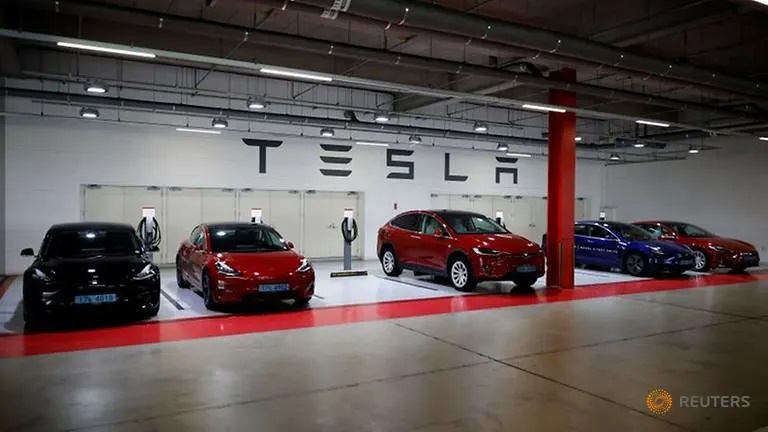
Prime Minister Lee Hsien Loong speaking at a virtual dialogue with the Atlantic Council on Jul 28, 2020.
SINGAPORE: Prime Minister Lee Hsien Loong on Tuesday (Jul 28) said he fears US-China tensions could continue beyond the US presidential election this year, highlighting the “bipartisan consensus on treating China as a threat”.
Mr Lee was speaking at a virtual dialogue organised by the Atlantic Council – an American think-tank – where he touched on Asia’s response to US-China tensions and Singapore’s handling of COVID-19.
Moderator David Rubenstein asked Mr Lee if he expects US-China relations to improve after the Nov 3 US presidential election, which will see US President Donald Trump go up against Democratic challenger Joe Biden.
“We hope so,” Mr Lee replied.
“Historically in presidential election years, the US-China relationship always gets entangled in the presidential campaign. And after that, after some time when the new administration settles in, you begin to understand what, really, the world is like and things settle down.
“I’m not sure whether it will happen this time, because the field is quite different, and the degree of animus, and sad to say, bipartisan consensus on treating China as a threat is quite extraordinary.
“And I fear that it may carry on over past the election and if it does, I think that bodes ill for the world.”
The Trump administration has frequently clashed with China in areas such as territorial claims, telecommunications gear and most recently, Beijing’s handling of the COVID-19 pandemic.
An administration led by Mr Biden is also expected to side with allies in confronting China on a range of issues, including Beijing’s national security law in Hong Kong.
Mr Lee called the current state of US-China relations an “unfortunate situation”, where the countries have taken actions and counter-actions and the issues have “metastasised and spread into all fields of the relationship”.
“It’s normal between two powers that you will have areas where you have contradictions and areas where you can work together,” he said.
“But I think the way things have developed over the last several years, you have very many areas where there’s not only contradiction, but also deep distrust, and this is corrosive and it’s making a very difficult relationship very dangerous.
“Because if it goes wrong, it’s not just any bilateral relationship, it’s the most important bilateral relationship in the world – between a very powerful United States of America, and between a country with one-quarter of humanity. And I don’t think that is a collision which should be lightly ventured.”
Mr Rubenstein then asked if Mr Lee if he was worried that the US might pull out of being an Asian power, “and not be as present there as it has been historically”.
Mr Lee said he is worried that the US might “collide” with China, including in Asia, and that the US might decide it has no stake in the region and “leave us to our own defences”.
“We all have good relations with China, we all want good relations with China in Asia, but we also all have very deep relations to the United States, and want to keep them at the same time, and maintaining that balance.
“And for the US to be able to play that role and tend your many interests, and your many friends and your many investments in the region, I think that requires a significant amount of attention from the United States policy establishment, from the State Department and from the White House too.
“Because otherwise, a part of the world which has been crucial to you since the Second World War, I think may become a problem rather than an asset to you.”
Mr Rubenstein also asked what advice Mr Lee would have for the new US president, be it Mr Trump or Mr Biden, if they had asked for it.
Mr Lee pointed to three things: Stabilise relations with China, develop a bipartisan consensus on US-Asia relations, and find a way to return to the Trans-Pacific Partnership, a multilateral trade pact that the Trump administration withdrew from.
The Prime Minister said developing a bipartisan consensus would allow for “stability and predictability” in US-Asia relations.
“Not just do the right thing for your administration, but make a consensus so that the policy will last beyond your administration, and people can plan on it, and can depend on it,” he said.
“We had the Obama administration and they talked about the rebalancing towards Asia and many Asian countries supported that. And we asked Obama, we said, ‘What will happen after your administration?’ He said, ‘Well, this is irreversible.’
“But the Trump administration has a different take. They have raised issues of compensation and payments with the Japanese and the South Koreans. They’ve also talked about putting more emphasis on Asia, which is welcome, but it’s a quite different mood from what Obama used to do.
“And we don’t know what Trump’s successor is going to do, or the successor’s successor.”
Mr Lee said a “stable, predictable” US policy with bipartisan consensus will help its “friends and partners”.
“I think it will be a great help to all your friends and partners who want to be able to depend on you and to rely on you, without the risk that one day, the big power may suddenly decide its interests lie elsewhere,” he stated.

